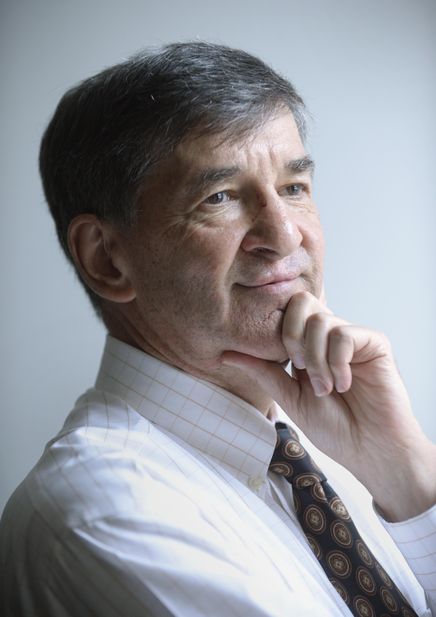Charlie Hebdo
The January 7 attack on the French newspaper Charlie Hebdo attack is no longer front page news around the world, but its impact continues to be felt, especially in Europe and in the Muslim world. In the United States, interest in the topic has clearly subsided, a development that always occurs when more current events overtake the past.
However, about 50 people turned out this week to listen to a two-man presentation about Charlie at a Humanities Washington's Think & Drink forum at Lindaman's restaurant.
The savage attack shocked the world and galvanized support for free expression. The attack also raised the level of debate about Islam and the extremists who use it as an excuse to commit violence. That's where former Spokesman-Review cartoonist Milt Priggee and Islam expert David Fenner come in.
Fenner retired from the University of Washington in 2007 as the assistant vice provost for international education. His interest in Islam dates to his experience living in the Sultanate of Oman on the Arabian Peninsula for six years. During his academic career he helped establish exchange programs with universities in Egypt, Morocco, Turkey and Pakistan.
Priggee and Fenner provided context about Muslim immigrants in France and the nature of editorial cartooning in France. The pair, who appeared at a similar program last week in Seattle, fielded a number of questions.
“What much of Charlie Hebdo printed was simply bigotry,” Fenner said.
“Ridiculing marginalized people is what Charlie Hebdo did,” he said, noting that Charlie Hebdo sold more papers when it mocked Muslims on its cover. Fenner said France continues to struggle with the influx of Muslim immigrants, who now number an estimated six million. It is a complicated relationship, he said.
Priggee said the action of the attackers in Paris “is not religion. It is extremism.” Priggee referred several times to the vast difference between the work of editorial cartoonists in France, Europe and the United States. “A cartoonist is supposed to challenge your beliefs,” Priggee said, lamenting that most papers in this country no longer have cartoonists on staff. Priggee said the work of cartoonists in Europe is considered important. “We just don’t value graphic expression here,” Priggee said.
Priggee described cartooning as “the visual exaggeration, intended to reveal the awkward truth that no one else wants to talk about." He later added, "the cure for bad speech is more speech, not enforced silence.”
